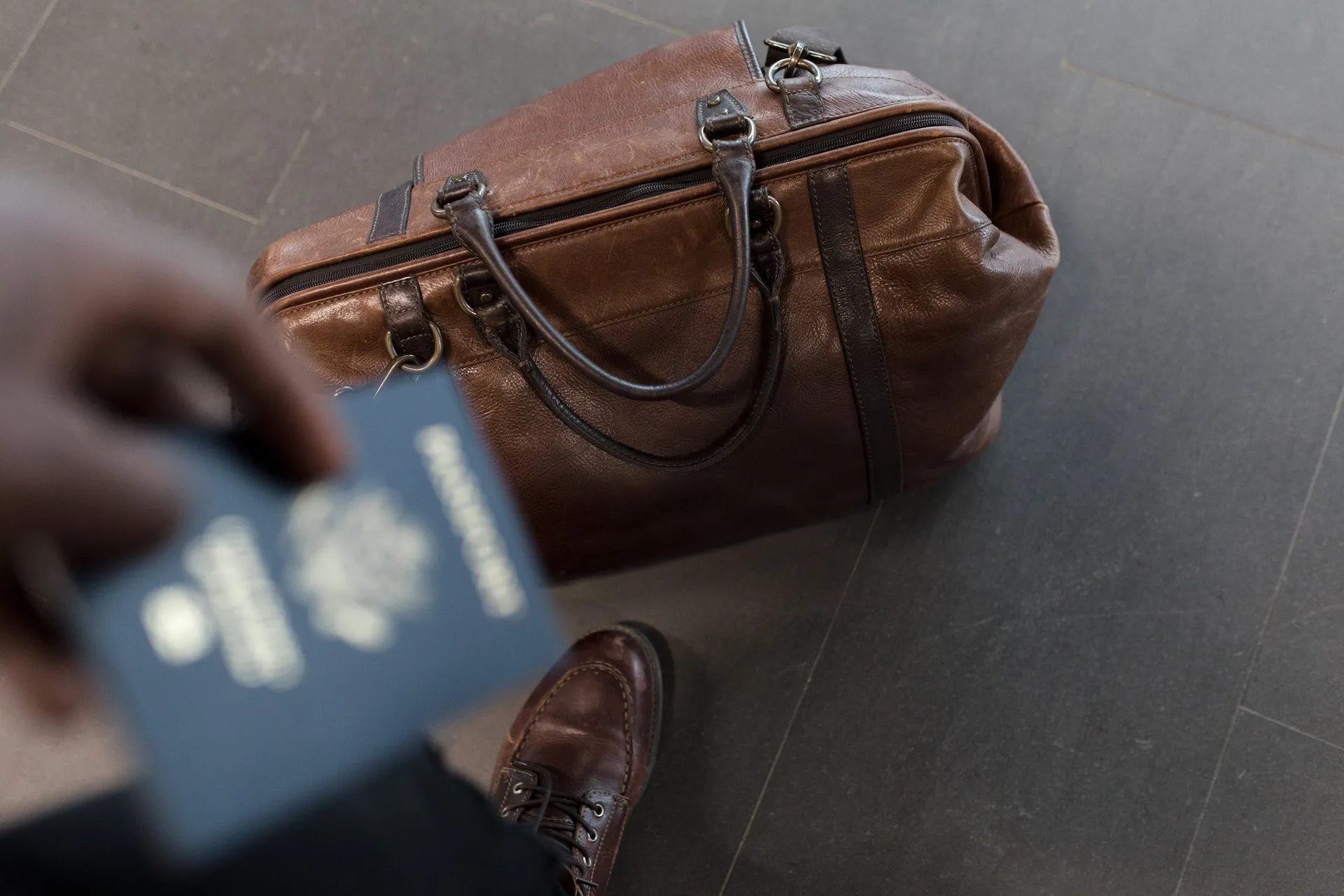Stamp 1G Ireland
Ireland Stamp 1G is aimed at international students who have been finished their studies and require permission to stay in the country to look for work.
Please get in touch with our experts on +44 (0)333 414 9244 if you would like to know more about the Stamp 1G eligibility criteria and how to apply. We are here to help you in person, via the phone, or online.
Read our 1001 reviews
Request a call back from our immigration experts
Benefits of Choosing IAS‘ Ireland Immigration Lawyers
When it comes to obtaining an Ireland visa or permit, IAS Ireland immigration lawyers are well-equipped to help you.
With IAS’ track record of successfully helping clients visit or immigrate to Ireland successfully, we can help you achieve your goal.
Our dedicated immigration lawyers provide our services through a comprehensive and personalised approach. With IAS, you enjoy:

Compassionate support from an experienced immigration lawyer dedicated to your success



Support in gathering supporting documents and completing a high-quality application.



Confidence that your case is being handled by an experienced team.



In-house document checks done by lawyers who are well-versed in Ireland immigration matters.
Services we Provide
What is Stamp 1G Visa in Ireland?
Individuals who are intending on operating a business or working for an employer in Ireland, as well as people with a Working Holiday Visa, will receive a Stamp 1 on their passport. This stamp allows them to work in Ireland.
The Stamp 1 Visa is divided into two parts: Stamp 1A and Stamp 1G. The former is offered to people with permission to work or study full time as a trainee accountant.
The Stamp 1G Visa (also knows as the Stay-back Visa) is designed for international graduates who wish to start their career in Ireland. In order for a Stamp 1G to be issued, it must be proven that the graduate student is actively looking for employment.


Who is Eligible for the Stamp 1G Visa in Ireland?
Foreign nationals in Ireland who possess a level 8/9 award from a recognised Irish awarding body are eligible for the Stamp 1G Visa for six months after obtaining their degree. These students must be current holders of the Stamp 2 Visa Ireland.
Upon receipt of the visa, the Stamp 1G holder must continue to search for jobs, and be prepared to work up to 40 hours per week. If the individual finds employment in Ireland, the Stamp 1G can no longer be relied on, and an Employment Permit must be obtained.
It is also possible to secure a Stamp 1G Visa if you are a Spouse/de facto partner of Researchers in the State on Hosting Agreements or a Critical Skills Employment Permit holder. Individuals who meet one of these requirements can work in Ireland without an employment permit.
Stamp 1G Visa holders are eligible to work for an employer in Ireland, but they do not have permission to be self-employed or operate a business.
The Third Level Graduate Programme can be used twice by Stamp 1G visa holders, provided that the applicant has not stayed in Ireland for longer than 8 years.
However, the limit for this programme is two rounds and if the individual’s right to remain in Ireland has expired, they must not reapply.
How to Apply For the Stamp 1G Visa in Ireland?
The Stamp 1G Visa application can be completed at a local registration office in Ireland or on the online portal. It is not possible to apply for a Stamp 1G from overseas.
The following documents must be submitted with the application:
- A Statement of Final Results
- Evidence of private medical insurance (minimum coverage of €25,000)
- Valid passport
- Irish Residence Permit card indicating the Stamp 2 permission
Applicants must pay a registration fee of €300 via the portal. The average waiting time for the application to be processed is 3-5 weeks.


What are the Rights Of Individuals Holding a Stamp 1G Visa in Ireland?
Individuals with the Stamp 1G are not entitled to access state funds and are required to pay for private healthcare insurance.
Stamp 1G Visa holders are granted permission to stay in Ireland for a maximum of 12 months. However, this can sometimes be extended.
The time spent in Ireland counts as qualifying years for reckonable residence, so some graduates are able to progress to a Stamp 4 Visa. The Stamp 4 benefits are similar to the advantages of Stamp 1G, as individuals can continue to work in Ireland without a work permit.
If the graduate’s wishes to stay in Ireland long term and become a Irish citizen, they must have evidence of reckonable residence in the country (a total of 4 years in an 8 year period).
How to Extend the Stamp 1G Visa in Ireland?
Though most people with a Stamp 1G Visa can only stay in Ireland for 12 months, graduates with a level 9 award can apply to extend their application by a further 12 months. This application must be made towards the end of the initial Stamp 1G Visa period.
Stamp 1G Spouses of Researchers on a Hosting Agreement and Critical Skills Employment holders may reapply for the Stamp 1G visa every year. In the event that the visa holder reapplies five years in a row, they are then eligible for a Stamp 4 Visa.
Evidence must be provided to demonstrate that the applicant has been taking steps to find employment, such as:
- Meetings with employment agencies
- Job application submissions
- Job interview attendance
What are the Benefits Of the Ireland Stamp 1G Visa?
The Stamp 1G Visa is ideal for graduates who are hoping to stay in Ireland for work, but do not currently have a job. Rather than having to return home and search for a job in Ireland, they are granted permission to stay in the country while they are applying to jobs.
The Stamp 1G Visa is also an excellent start to life in Ireland, as it paves the way for different Irish immigration stamps, and even Irish citizenship.
Not only do Stamp 1G holders have proof of residence in Ireland, but they also have experience with the immigration process, which will help them if they decide to apply to become an Irish citizen via naturalisation.
As people with the Stamp 1G can work for up to 40 hours a week, they are not restricted to part-time contracts, which means there is more scope for earning a high income.
What are the Limitations Of the Irish Stamp 1G Visa?
It is not permitted to work more than 40 hours per week on a Stamp 1G visa. There are no exceptions to this rule, which means Stamp 1G Visa holders may be slightly restricted in their job search or unable to take on extra part-time work roles.
Self-employment is also not permitted on the Stamp 1G visa so some applicants may find that their career options are limited.
Another potential limitation of the Stamp 1G visa is the fact that there is the prior expectation of a level 8 or 9 study award. This means that students who have struggled with the Irish education system may be excluded from the visa.
Finally, applicants are limited by the requirement to have private healthcare insurance. Anyone considering the Stamp 1G visa must factor this into their budget, to ensure that they would be able to afford to stay in Ireland without access to the public healthcare system.
How Can IAS Help?
Understanding the conditions of different Irish immigration stamps can be complicated if you do not have legal knowledge. IAS offers a comprehensive package to clients who are interested in gaining a Stamp 1G. Call us on +44 (0)333 414 9244 to get started.
We also offer an application package to clients hoping to find support with the online application process. It is vital that Stamp 1G Visa applications do not contain mistakes as this can lead to length delays or possible refusal – which can have a long-term impact on future immigration applications.
If you are looking to renew your Stamp 1G for an additional period of twelve months, IAS can offer expert advice on how you can do it. We can ensure that you provide all the information and documents necessary for you to be able to stay in Ireland longer.
Call us on +44 (0)333 414 9244 to get started with applying for a Stamp 1G.
Table of Contents
Table of Contents will appear here.Legal Disclaimer
The information provided is for general informational purposes only and does not constitute legal advice. While we make every effort to ensure accuracy, the law may change, and the information may not reflect the most current legal developments. No warranty is given regarding the accuracy or completeness of the information, and we do not accept liability in such cases. We recommend consulting with a qualified lawyer at Immigration Advice Service before making any decisions based on the content provided.
Frequently Asked Questions
The Stamp 1G Visa is not only available to undergraduate students. Master’s and PHD students who have completed their studies are also eligible for this stamp. These applicants may be entitled to stay in the country for a full 24 months, as opposed to the standard length of 12 months.
All visa applicants must have proof of obtaining a level 8 or 9 certificate that is accredited by an Irish awarding body. However, the subject of the degree does not affect the graduate’s eligibility. Any degree subject is permitted.
There are no rules that only certain job roles are acceptable for the the Stamp 1G Visa. Any business trade or profession is allowed, provided that it does not involve being self-employed or having your own business.
However, if you are part of the Third Level Graduate Programme, you will need to find a trade or profession that qualifies as suitable graduate level employment. This could potentially exclude casual employment or a temporary work role.
No, you cannot. All applicants must have proof that they studied at an Irish university and that their degree was accredited by an Irish awarding body.
If you are employed in Ireland without either a work permit or an appropriate visa (e.g., the Stamp 1G), you could face criminal charges. There is also a high possibility that you would be deported from the country by Irish immigration authorities. It is very unlikely that you would ever be able to obtain Irish citizenship after this.
You must hold either an up-to-date employment permit, or a visa that excludes you from needing a work permit, as well as an Irish residence permit. The latter will feature the type of immigration permission you have bene given, such as Irish Stamp 1G or Stamp 4.


What our clients are saying
How our UK Immigration Lawyers can help
At the Immigration Advice Service our lawyers specialise in a wide range of UK visas, nationality and asylum applications and have represented clients in various successful complex and high-profile cases.















